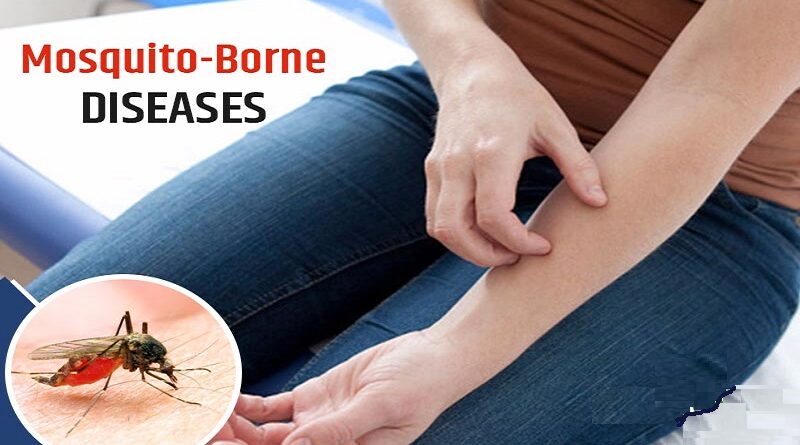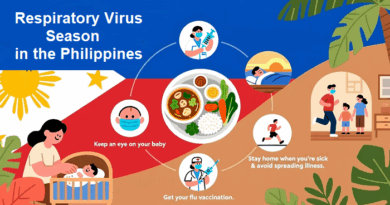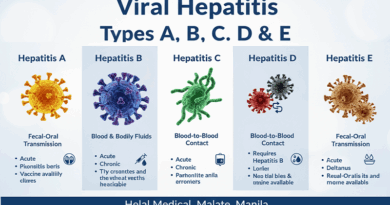Mosquito Borne Diseases: Buzzing Bloodsuckers
Mosquitoes are not just annoying pests but also bring us Mosquito-Borne Diseases. They are carriers of various diseases that can pose significant threats to human health. While we often focus on their itchy bites, it’s essential to understand the potential dangers these insects bring. In this article, we delve into mosquito-borne diseases, exploring their types, symptoms, prevention, and treatment options.
Mosquitoes: The Silent Disease Carriers
Numerous infectious diseases are transmitted through mosquito bites. When a mosquito bites an infected individual, it becomes a carrier of the disease-causing parasites or viruses. These pathogens are then passed on to the next victim the mosquito bites, thereby spreading and propagating the diseases among populations.
Common Mosquito-Borne Diseases
Among the common mosquito-borne diseases are dengue fever, malaria, and yellow fever. Dengue fever is a viral illness that causes high fever and severe muscle and joint pain. Malaria is caused by a parasite that lives in mosquitoes and affects the human circulatory system, potentially leading to death in severe cases. Yellow fever, on the other hand, is a serious viral infection that affects the liver and manifests symptoms such as fever, jaundice, and yellowing of the skin and eyes.
A. Malaria
Caused by the Plasmodium parasite, which is transmitted through the bite of infected female Anopheles mosquitoes. It is a major global health concern, particularly in sub-Saharan Africa, South Asia, and parts of Central and South America. Symptoms include fever, chills, headache, muscle aches, and fatigue. If not promptly diagnosed and treated, malaria can be severe and fatal. Prevention involves using insecticide-treated bed nets, indoor residual spraying, and taking antimalarial medications. Additionally, ongoing research aims to develop an effective malaria vaccine to combat the disease.
B. Dengue Fever
Dengue fever is a viral illness transmitted by the Aedes mosquito. It is prevalent in tropical and subtropical regions, primarily in urban areas. The symptoms of dengue fever include high fever, severe muscle and joint pain, headache, rash, and fatigue. In severe cases, it can lead to dengue hemorrhagic fever or dengue shock syndrome, which can be life-threatening. There is no specific treatment for dengue fever, so prevention through mosquito control and avoiding mosquito bites is crucial. Public health efforts focus on eliminating mosquito breeding sites and raising awareness about personal protection measures.
C. Yellow Fever
Yellow fever is a viral disease transmitted by infected Aedes or Haemagogus mosquitoes. It is prevalent in tropical regions of Africa and South America. The symptoms of yellow fever include fever, jaundice (yellowing of the skin and eyes), headache, muscle pain, nausea, and vomiting. In severe cases, yellow fever can cause organ failure and death. Vaccination is the most effective preventive measure against yellow fever. Travelers to endemic areas should ensure they receive the yellow fever vaccine before their trip. Mosquito control efforts, such as eliminating breeding sites, are also crucial in preventing the spread of the disease.
D. Zika virus
It is a mosquito-borne viral infection primarily transmitted by the Aedes mosquito, particularly the Aedes aegypti species. The virus was first identified in the Zika Forest of Uganda in 1947 and has since spread to various parts of the world. Most commonly, Zika virus is transmitted through the bite of an infected mosquito, but it can also be sexually transmitted or passed from a pregnant woman to her fetus.
Lesser-Known Mosquito-Borne Diseases
A. Chikungunya: The Debilitating Fever
B. West Nile Virus: Threatening the West
Prevention and Control
To mitigate the spread of mosquito-borne diseases, several preventive measures should be taken:
- Eliminate stagnant water:
Stagnant water is an ideal breeding ground for mosquitoes. Empty or clean any containers holding stagnant water in and around households and public areas. - Use insecticides:
Employ appropriate insecticides to control mosquitoes, such as spraying insecticides in mosquito-prone areas or using household insecticides indoors. - Practice personal protection:
It is advised to wear long, light-colored clothing and apply mosquito repellents on exposed skin and clothing, especially during known mosquito activity times like evenings and nights. - Utilize protective screens:
Install mosquito screens on windows and doors to prevent mosquitoes from entering homes and buildings. - Vaccination:
Ensure proper vaccination for mosquito-borne diseases, such as malaria and yellow fever vaccines, based on recommended guidelines from recognized health authorities.
Summary:
Mosquito-borne diseases continue to pose significant health risks worldwide. From malaria to Zika virus, these tiny insects can wreak havoc on individuals and communities. Understanding the diseases they transmit, recognizing their symptoms, and adopting preventive measures are crucial steps in safeguarding our health. By fostering global efforts and promoting community engagement, we can work towards a future where mosquitoes are no longer threatening our well-being.
If you suspect that you may have symptoms, Helalmedical can help, offering quick, private, and convenient testing options. You may contact us here: Facebook page.




